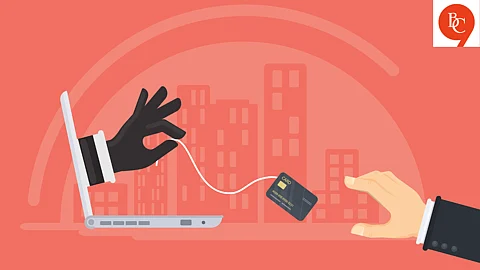

In an era where everything from dating to job hunting happens online, even the smartest people can get tricked. But don’t panic—this guide is here to help you decode the manipulation, stay alert, and outsmart the scammers at their own game.
Why Online Scams Feel So Real in 2025
Scammers have upgraded. With the help of advanced technology, they have started using AI-generated deepfake videos, cloned voices, social engineering tactics that would directly tap onto your emotion, or create fake job offers, fake brand collabs, or even be fake friends.
The Most Common Personal Scams Right Now
1. The Influencer Trap
You get a DM from a brand offering a free product or paid promo. They send a “collaboration link” or ask you to sign in somewhere. The moment you click that link and there is no productive action that happens, it’s understood that your account is hacked.
The basic rule about collabs is that usually asked though mails and not random DMs. But if there comes a situation always keep in mind never to open click such unknown links in DMs.
If you receive links from a brand, make sure you verify the brand’s official social media handle.
2. The “Hot Stranger” Scam
A flirty stranger starts chatting. It turns intimate fast.
Then comes the blackmail: pay up or your private photos will be leaked.
In such cases don’t share any kind of content, even if there are someone you know. If you feel anything suspicious, immediately report and block that person.
3. The Dream Job Offer Scam
You apply for a job or internship and get selected quickly. But they ask you to pay a “training fee” or buy software in advance, it’s a clear scam.
No legit employer asks for money from the. Still, make it a habit to check the company on LinkedIn or any other verified job portal.
Think twice of urgent or high-paying offers.
4. The ‘OTP Gone Wrong’ Scam
You get a call pretending to be from a delivery service, bank, or mobile provider. They ask for an OTP to “verify your account.” That OTP is actually for logging you out of your own account.
Never share OTPs. There are usually never asked on calls. Make sure you verify everything properly before taking any step forward.
5. The ‘Friend in Trouble’ WhatsApp Message
You get a message from a friend’s number asking for urgent money or help. It’s often a hacked or spoofed account.
In such cases, call the person directly to confirm. If they don’t answer the call, assume its fake. Make sure you immediately block that user and tell your friend whose account is been hacked so, others can be saved from such a scam.
How to Stay Scam-Smart in 2025
· Use different passwords
Turn on two-factor authentication
Avoid saving card details
Be private on social media.
If you’ve ever fallen for an online scam, you’re not alone. Scammers are strategic manipulators. What matters is what you do next:
Report.
Learn.
Share the knowledge.
Because the more we talk about it, the fewer people will suffer in silence.
